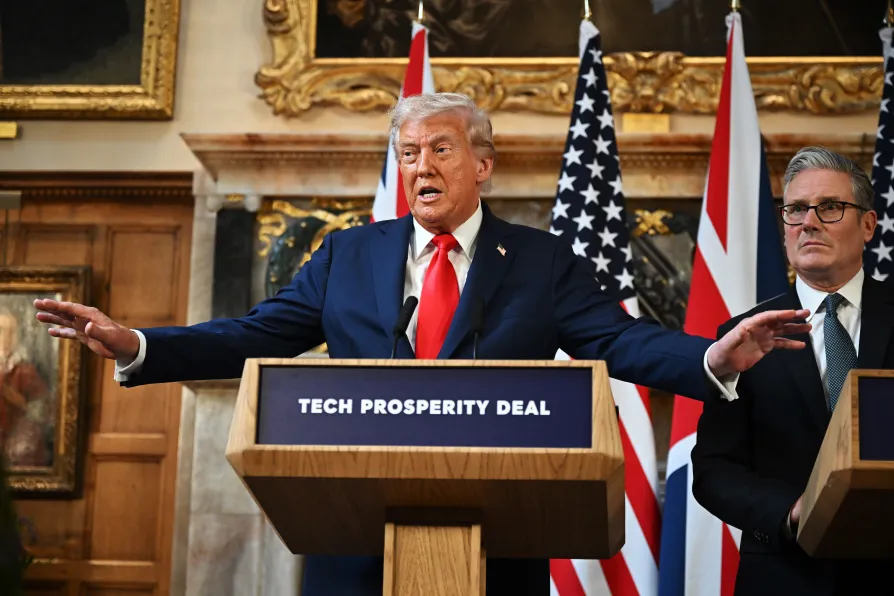
 Prime Minister Keir Starmer and US President Donald Trump during a press conference at Chequers, near Aylesbury in Buckinghamshire, September 18, 2025
Prime Minister Keir Starmer and US President Donald Trump during a press conference at Chequers, near Aylesbury in Buckinghamshire, September 18, 2025
“INNOCENT until proven guilty.” A quaint old phrase increasingly disdained by the British media — especially over anything concerning China.
When prosecutors dropped charges against two luckless men accused of spying for China last month, they said it was because there wasn’t enough evidence to take the case to trial.
Both have always maintained their innocence; the collapse of their trial due to insufficient evidence against them might be argued to support that. But not in British public life, where they have not even been afforded a trial by media: instead, the right-wing press, the Tory Party and even the Labour government have hurled themselves into a blame game in which their guilt is assumed and only the failure to jail them needs explaining.
It’s a familiar story. If you can’t prove anything against someone accused of ties to Beijing, it’s always the system not the evidence at fault. We saw it with the lawyer Christine Lee, when MI5 briefed the press despondently that “the laws were not in place” to prosecute her (ie, she did nothing illegal). And again last winter, when the Telegraph kicked up a fuss over the government employing a freelance interpreter whom it acknowledged had “not been accused of criminality or wrongdoing” but who was said to run pro-Chinese websites.
The media storm is not really about the men in question. It is an attempt to derail any improvement in Britain-China relations, and is wholly political.
Hence the furore over whether the trial collapsed because the government refused to name China as an “enemy,” the goal of the frenzied op eds and Tory Party broadsides being to force it to do just that.
After all fear of China stealing British secrets is a bit archaic, given its clear technological lead over us whether it comes to green energy, robotics or artificial intelligence. Perhaps why the pair were only accused of passing on “politically sensitive” information.
Declaring China an enemy has obvious drawbacks: alienating the world’s second-biggest economy when the government is desperate for investment in Britain’s sluggish one, and for markets for British products; reducing the scope for scientific co-operation with the world leader in multiple fields, including those essential to addressing climate change; taking the road toward confrontation and possible war.
Cheerleaders for this reckless course say none of this matters. In fact, burning bridges is the point. This is a concerted political offensive designed to shackle Britain ever more closely to Donald Trump’s United States. Some hint at this openly, warning Labour that the White House will look askance if it hesitates to denounce Beijing.
Our increasingly Trumpian right don’t care about green technologies — like their icon in Washington they deny the need to act on global warming. So what if China won’t invest or buy our products — these parasites have no interest in the productive economy anyway. US corporations are ready and willing to buy up our public services and erect water- and energy-greedy data centres the length and breadth of Britain.
Like Trump’s own, their vision is so short sighted it approaches nihilism. The man in the Oval Office stands for climate denialism, might-is-right lawlessness as seen in its bombing of Venezuelan waters and endorsement of genocide in Gaza, bigotry at home and thuggish, gun-to-the-head “deal-making” abroad.
That is what we are being asked to embrace as our future by turning our backs on China, which is why we all, whatever our attitude to Beijing, should call out this propaganda campaign for what it is.
China is not a threat to our country’s security. The United States is a threat to the world’s.










